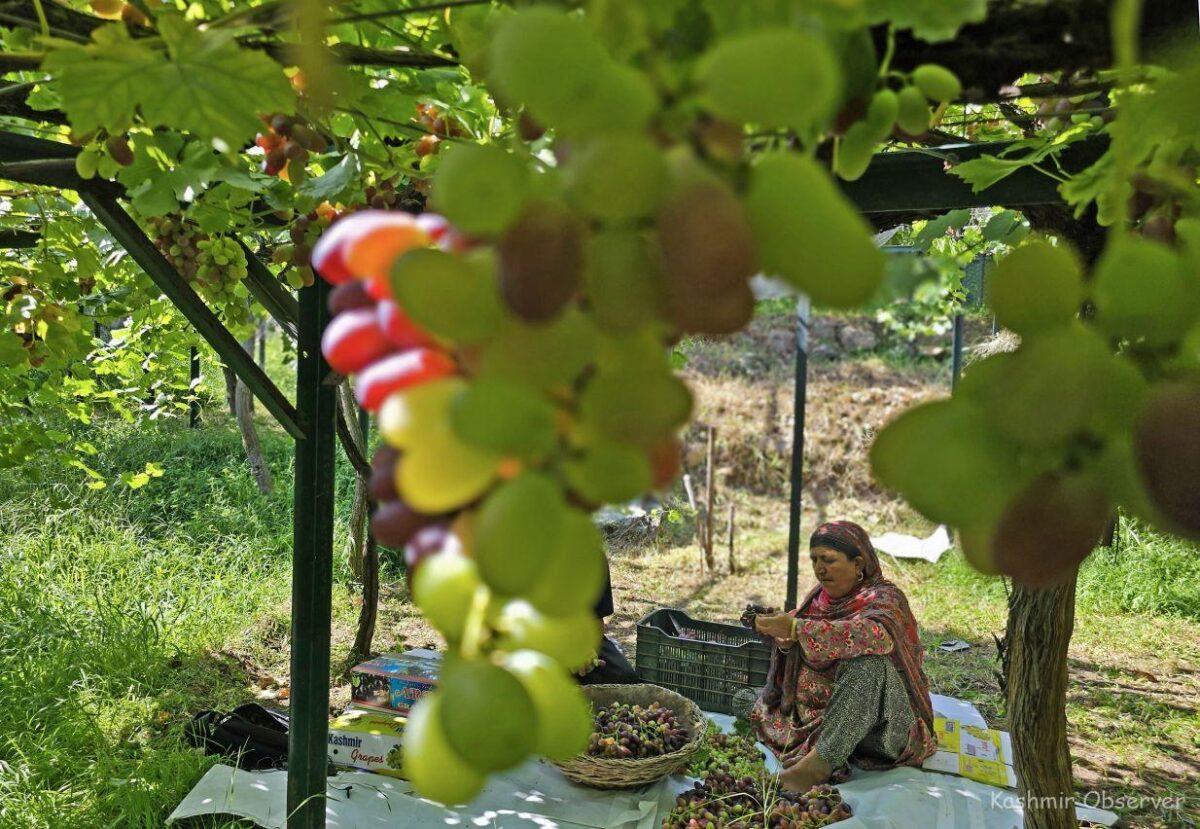
Why Grapes Aren't Sour For Kashmir
KO file photo
By Uzma Qadir Mir
Every green orchard in Kashmir tells a story of families, livelihoods, and an economy rooted in the soil. Beyond a scenic backdrop, these fruit gardens are the heartbeat of rural life.
Horticulture alone contributes nearly 9 percent to Jammu and Kashmir's Gross Domestic State Product, making each tree, each harvest, a vital thread in the lives of thousands of households who depend on them for survival.
Unlike mining, construction, or even tourism, horticulture brings money earned in national and international markets back into villages, where few other sources of livelihood exist. It has long acted as a stabilizer of incomes, a generator of employment, and an engine of trade that reaches far beyond the valley.
Over the past two decades, Kashmir's orchards have undergone a silent transformation. What once was a subsistence-driven system, with smallholders cultivating as their parents had done, has become more market-aware, infrastructure-enabled, and ambitious.

Legal Disclaimer:
MENAFN provides the
information “as is” without warranty of any kind. We do not accept
any responsibility or liability for the accuracy, content, images,
videos, licenses, completeness, legality, or reliability of the information
contained in this article. If you have any complaints or copyright
issues related to this article, kindly contact the provider above.
















Comments
No comment